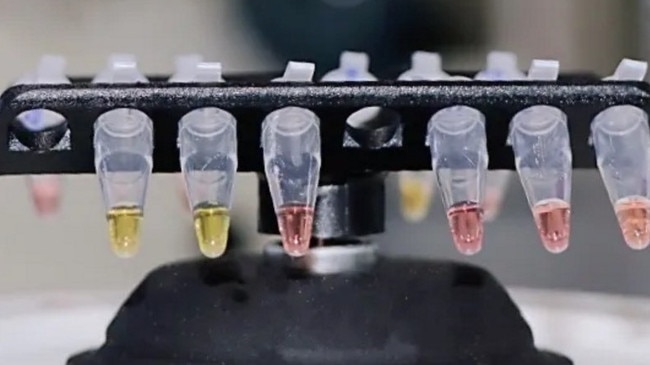Oxford University scientists say they can fast-track coronavirus testing
Oxford scientists have claimed a breakthrough in coronavirus testing that reduces testing time and detects the virus earlier.

Scientists at Oxford University say they have made a breakthrough in coronavirus testing that dramatically reduces testing time and can detect the virus earlier.
The scientists from the university’s Engineering Science department and the Oxford Suzhou Centre for Advanced Research say the new test for COVID-19 can give an accurate result in half an hour.
They say they are developing “an integrated device” so that the tests can be used at clinics, airports, or even at home.
The new test appears to be an important breakthrough in the fight against the virus. The progress of the virus can be slowed if infected people are detected earlier. Hospitals and health workers can conduct more tests if these tests take less time.
Detecting coronavirus in a person earlier would give medical staff and health researchers more up-to-date information on the virus’s spread.
The unknown is how quickly production of these tests can be ramped up and made available across the world.
The Oxford team led by Professor Zhanfeng Cui and Professor Wei Huang says they had been working to improve test capabilities as the virus spread internationally.
The university says the test is more than a three-fold time improvement on what was possible before. Previous viral RNA tests took 1.5 to 2 hours to give a result, this one takes half an hour.
"The beauty of this new test lies in the design of the viral detection that can specifically recognise SARS-CoV-2 (COVID-19) RNA and RNA fragments," Professor Wei Huang said.
“The test has built-in checks to prevent false positives or negatives and the results have been highly accurate.”
“Additionally, the technology is very sensitive. This means that patients in early stages of infection may be identified sooner, potentially helping to reduce the spread of the coronavirus.
He says the technology only requires a simple heat-block and the results can be read by the naked eye. This males it potentially useful in rural areas and community healthcare centres.
The university says the technology has been validated with real clinical samples at Shenzhen Luohu People’s Hospital in China.
It says the hospital applied the rapid detection kits on 16 clinic samples, including eight positives and eight negatives, which had been confirmed by conventional RT-PCR methods and other clinical evidence.
The test results using the rapid detection kits were all successful.



To join the conversation, please log in. Don't have an account? Register
Join the conversation, you are commenting as Logout